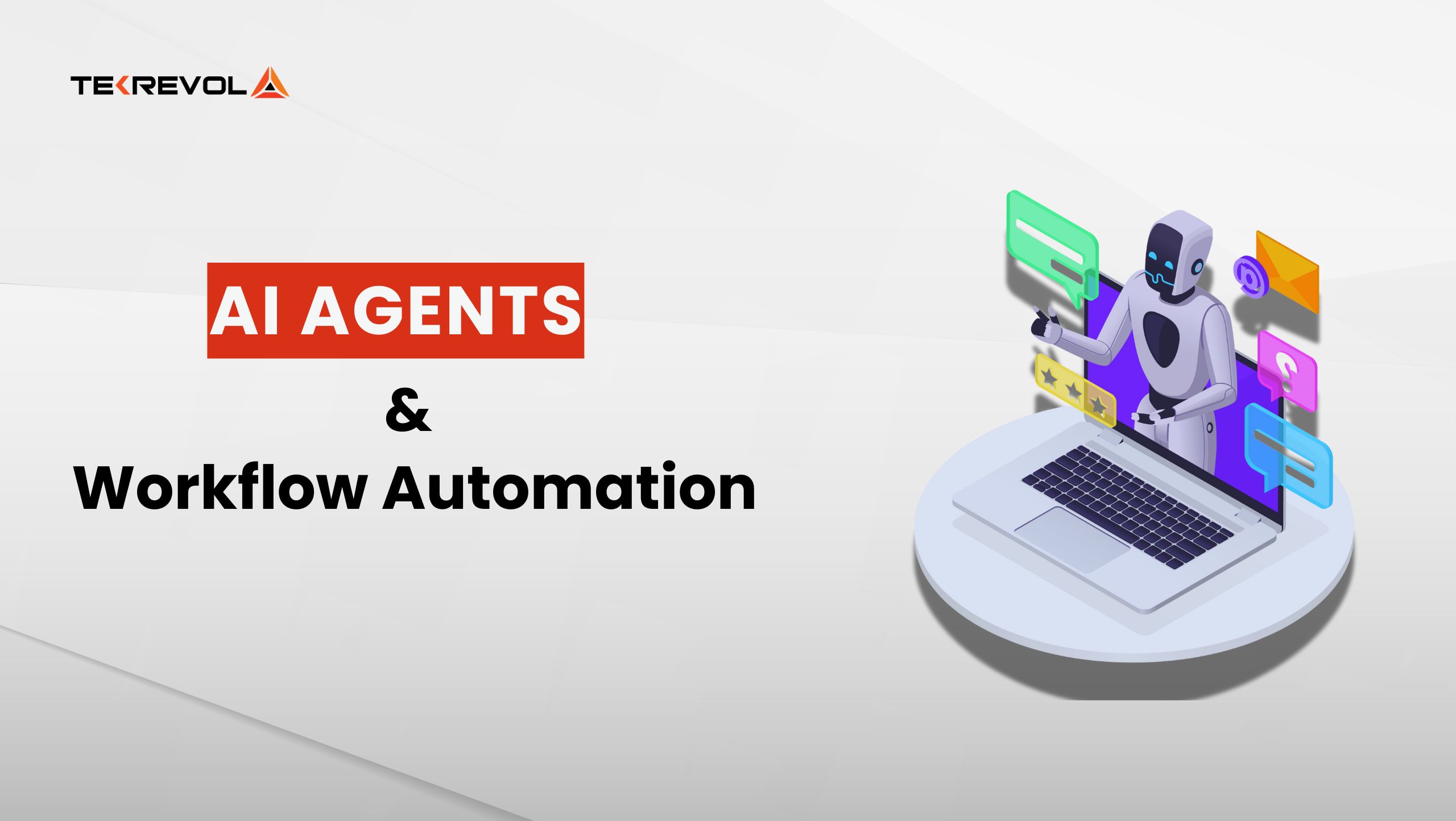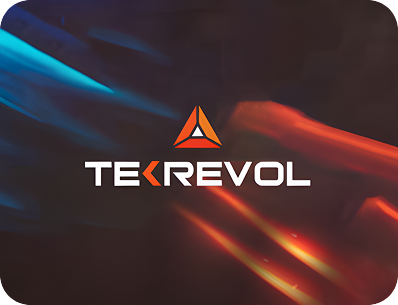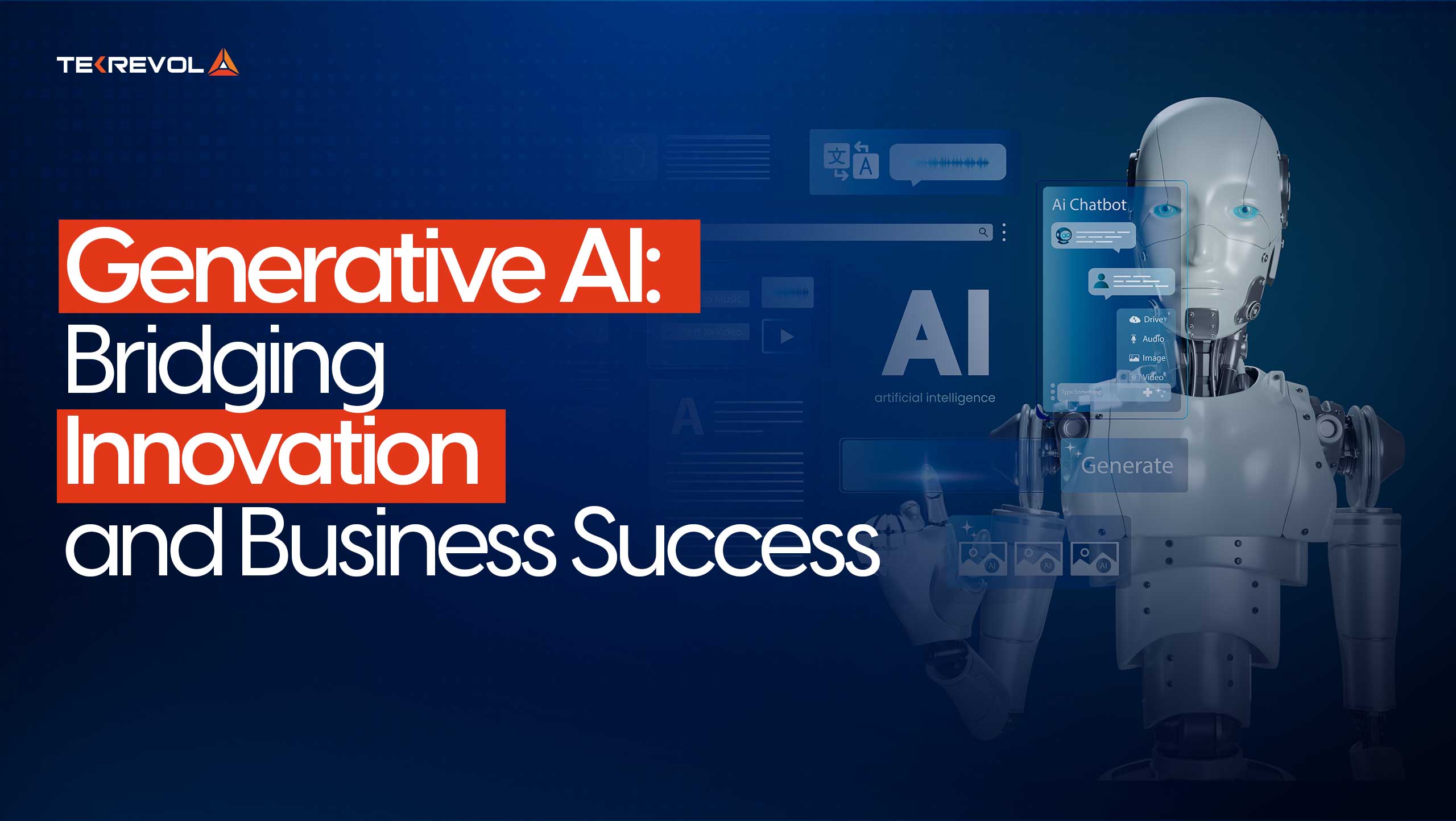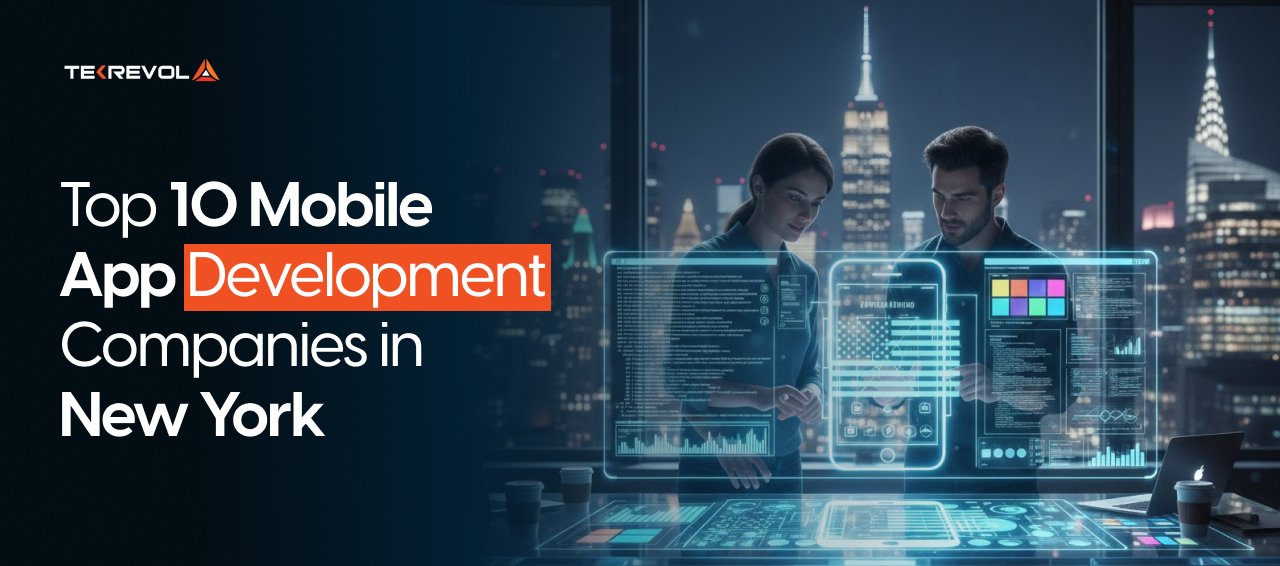AI automation brings a revolution in business operations, facilitating faster decisions with fewer manual steps and leaner teams. Gartner reports that by 2025, 70% of organizations will rely on AI agents to run core operations and reduce costs.
But having tools is not enough. Most companies still struggle to implement AI into their workflows, busy in testing bots and automation platforms in silos. They overlook the bigger opportunity: embedding AI agents directly into day-to-day processes.
Through this guide, we cut through the noise and let you know what AI automation looks like in execution, how AI agents power smarter workflows, and which tools help you move from pilot projects to real impact.
What Is AI Automation?
AI automation means the use of artificial intelligence to perform tasks without human effort. Contrary to traditional automation that abides by rules, it can analyze data and learn from outcomes to make decisions.
Consider AI-powered task management apps as an example. These AI automation apps don’t just assign tasks; they prioritize, predict delays, and recommend actions.
A report by McKinsey shows that 50% of work activities could be automated using AI tech, especially in fields like finance, customer service, and IT workflows. Whether a startup or working with an AI automation agency, the goal is to free up your team from grunt work.
Current Market Size and Scope of AI Automation
The global AI market is growing fast. It’s expected to reach USD 3,680.47 billion by 2034, with a CAGR of 19.20%, according to Precedence Research. The never-ceasing enterprise demand for intelligent automation tools is the primary factor behind it.
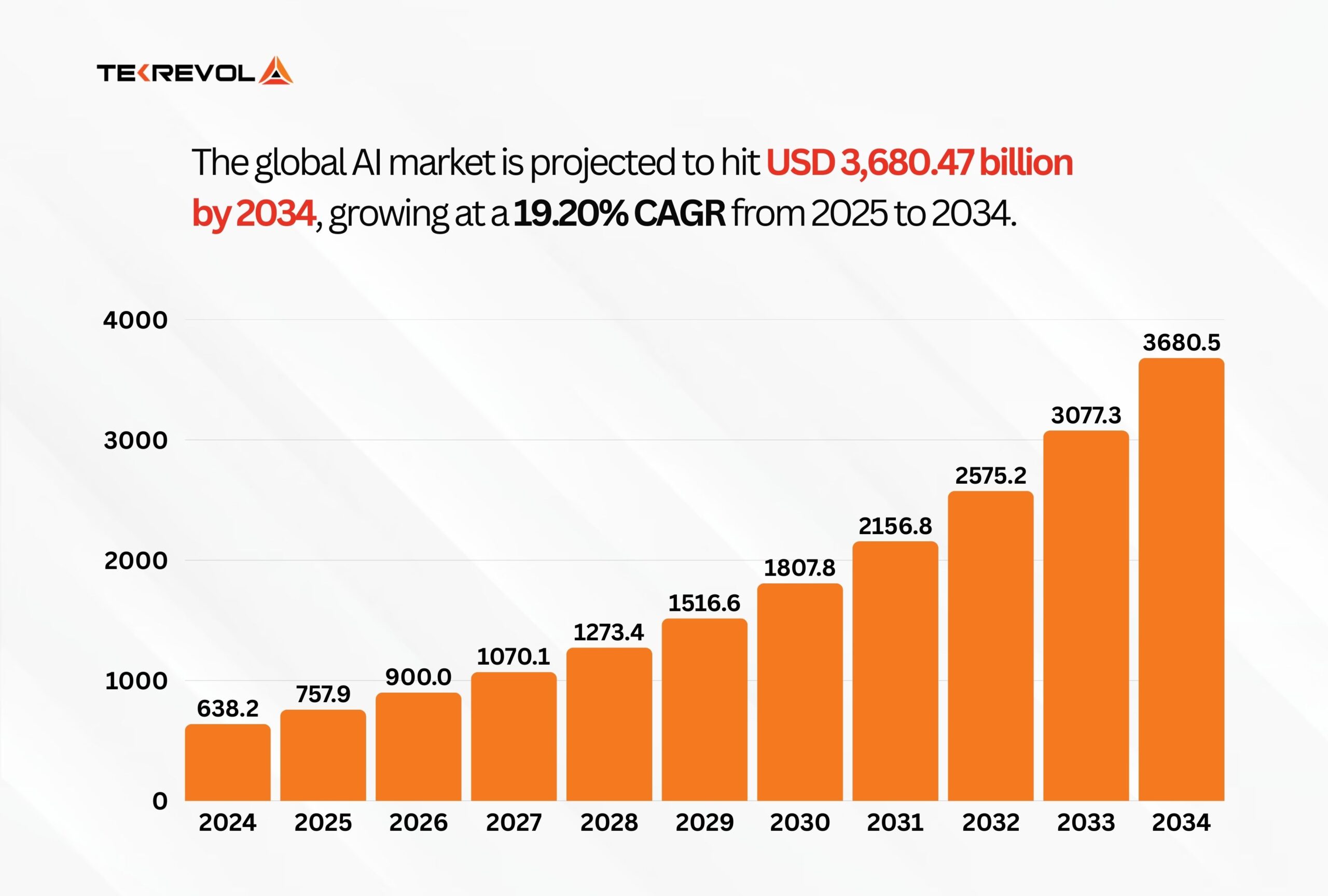
In finance, healthcare, and logistics, AI scales to cut costs and boost speed. AI automation Reddit conversation spot business opt for trending tools, not more dashboards. From AI-powered ticket routing to automated compliance workflows, adoption is rising across teams.
What Is AI Workflow Automation?
AI workflow automation involves the use of AI to manage and optimize business processes automatically. Unlike robotic process automation (RPA), which handles structured, repetitive tasks, it handles logic, exceptions, and decisions.
Here is a practical angle of the above statement: you can speed up the loan approval process using AI for checking documents, flagging missing info, assigning risk scores, and routing cases for review. Similarly, in hiring, it can scan resumes, match candidates to roles, and schedule interviews without HR ever touching a spreadsheet.
A 2024 Deloitte survey found that 62% of companies using AI in workflows reduced delays by at least 25%.

What’s the Difference Between AI Agents and Workflow Automation?
AI agents are goal-driven systems that think, adapt, and act based on changing inputs. On the other hand, workflow automation follows predefined steps that are associated with certain conditions.
The underlying fact is that AI agents react intelligently, while the execution of workflow automation depends on rules. Here’s a quick breakdown:
| AI Agents | Workflow Automation |
| Thinks and adapts based on context | Executes pre-set tasks |
| Works toward an outcome (goal-driven) | Follows triggers and rules (task-based) |
| Can adjust workflows mid-process | Follows a fixed sequence |
| Ideal for decision-making and prioritization | Ideal for repetitive, structured processes |
| Requires data inputs to improve | Runs the same way every time |
According to IBM, 80% of executives say combining AI and automation is critical to future business success. Used together, AI agents can drive intelligent decisions while workflow automation handles the structured execution.
How to Integrate AI into Your Workflow?
Integration of AI into your workflow demands focus on one actual problem, not automating everything at once. Select the tools that fit your team/process, add AI logic where it matters, and improve as you go.
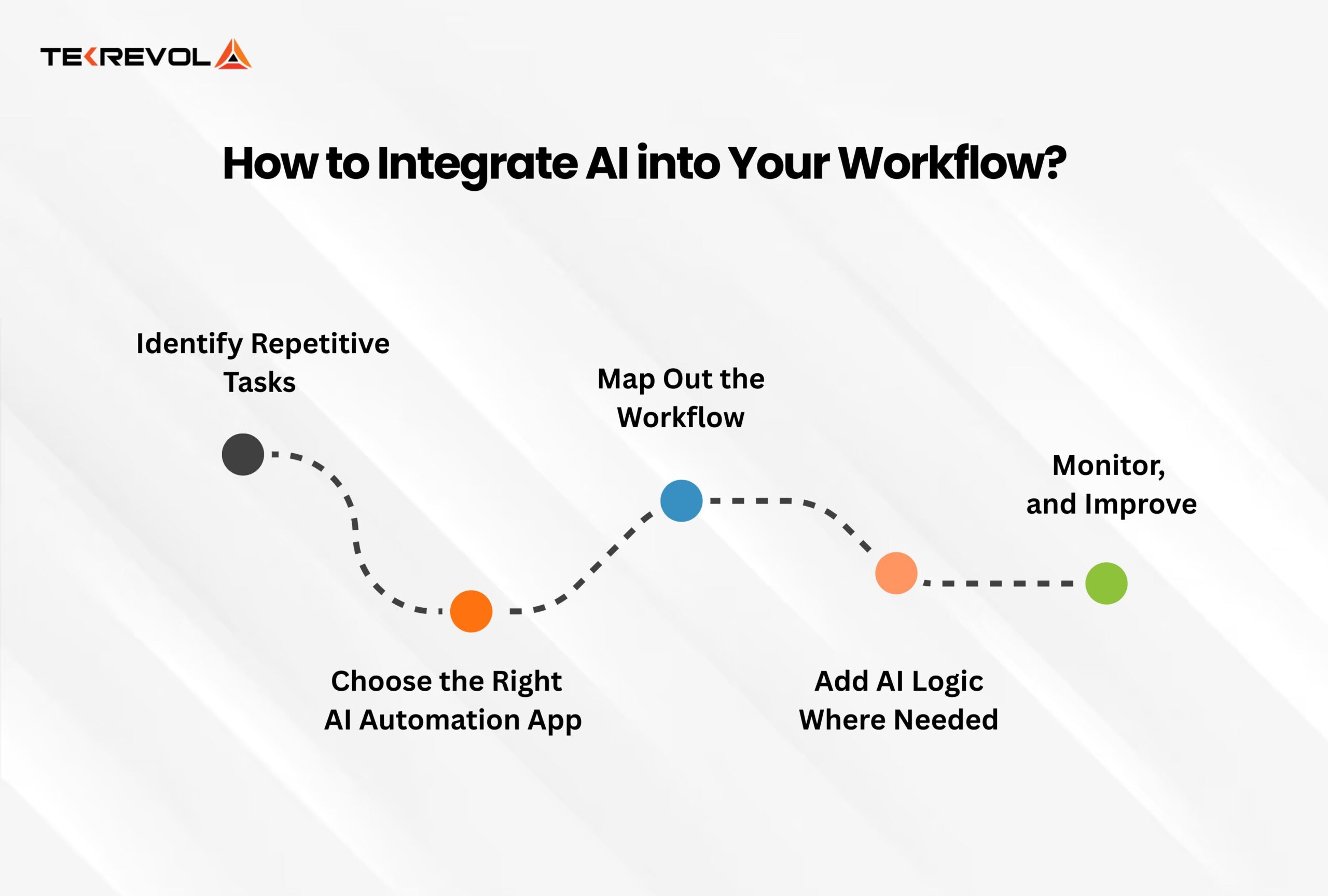
Here’s how to successfully implement AI into business operations:
1. Identify Repetitive Tasks
Look for tasks that drain time and follow a clear pattern. Think of lead sorting, invoice approvals, or customer replies.
2. Choose the Right AI Automation App
Go for tools your team can actually use. Low-code platforms like Make or AI-driven CRMs are great starting points.
3. Map Out the Workflow
Sketch every step: inputs, decisions, outputs. This helps you avoid missed logic or dead ends.
4. Add AI Logic Where Needed
Use AI for tasks that need decisions, like scoring leads, flagging issues, or generating responses.
5. Track & Improve
Continuously track performances and outcomes. Adjust triggers time to time and retrain models to ensure clarity.
Deloitte says that companies using AI-powered workflows report up to 30% faster execution times. The key isn’t using more tools but using the right AI automation app to simplify what your team already does, then improving it step by step.
What Is the Best AI for Workflow Automation?
The best AI agent depends on your goals, team size, and tech stack. For most teams, tools like Make.com, n8n, and Salesforce Einstein stand out.
Each balances ease of use, flexibility, and smart automation. Here’s how they stack up:
| Tool | Best For | Key Features | Use Case Example |
| Make.com | No-code teams | Visual builder, 1,000+ app integrations | Automate lead handoffs from forms to CRMs |
| n8n | Developers & tech teams | Open-source, API-first, supports AI model integration | Auto-generate reports using AI with webhooks |
| Salesforce Einstein | Enterprise CRM users | AI-powered insights, native CRM integration | Score leads, trigger follow-ups automatically |
AI automation courses on platforms like Coursera and Udemy walk you through using these tools step-by-step if you’re just getting started or scaling up.

What Are Examples of AI Automation Workflow?
A simple example of AI automation is using a chatbot to answer support tickets and route urgent ones to a human rep. Given below are a few more practical examples:
- Customer Support: Auto-respond to FAQs and escalate priority tickets using Make.com and ChatGPT.
- Sales: In sales, AI automation scores and routes leads in real time based on past behavior and firmographic data.
- HR: The Human Resource team uses AI to scan resumes and shortlist applicants, which reduces screening time by over 60%.
- Marketing: AI automation is implemented in marketing for segmenting contacts to send targeted emails based on customer actions or product usage.
According to SuperAGI, AI-powered workflows not only improve productivity by up to 40% but also reduce costs by 30%. Using the right AI tools, you can build, test, and deploy automations in hours without upfront cost.
What Should You Avoid When Integrating AI into Your Workflow?
AI automation can save time, but only if set up right. Many teams hit roadblocks by trusting AI with tasks it’s not built for.
As per Forbes, 85% of AI projects fail to deliver expected results, mainly due to poor planning or overconfidence in automation. The most common mistakes to look for:
- Automating judgment calls: AI can’t fully replace human involvement in sensitive decisions like hiring or legal reviews.
- Poor quality or insufficient data: What goes in, comes out. Training your AI on incorrect or incomplete data leads to bad results.
- No human review: Always add a step for review, especially early in deployment.
- No fallback logic: Build “if this fails” scenarios. Don’t let your workflow freeze on one broken step.
The smarter move? Pair AI automation tools with real oversight, ideally with guidance from an experienced AI automation agency that understands your workflow.
How Tekrevol Helps With AI Automation That Works
Many companies want to use AI, but struggle to connect it to their real workflows. The tools are out there, but without the right setup, most don’t stick.
At Tekrevol, we help businesses turn manual and time-heavy processes into simple, automated systems. As a skilled AI agent development company, we build custom solutions that fit your industry, tools, and goals.
From mapping your workflow to developing AI agents that actually make decisions, our team handles the full process, helping SaaS, healthcare, logistics, and finance teams automate faster without losing control.


